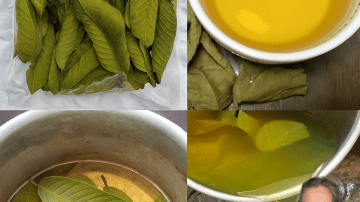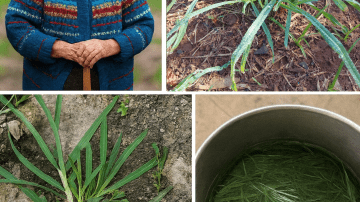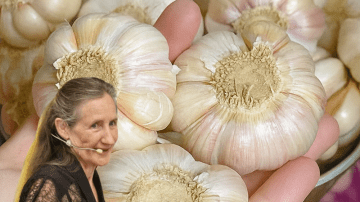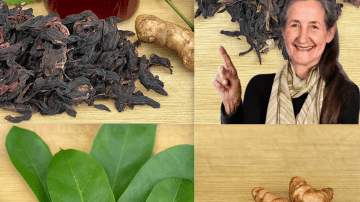Dive into the captivating world of taro, a root vegetable that’s been a cornerstone of cultures for millennia. Known scientifically as Colocasia esculenta, taro is far more than a humble tuber—it’s a nutritional dynamo, a culinary shapeshifter, and a cultural treasure. From lush rainforests to modern kitchens, taro’s story is one of resilience, flavor, and heritage that will inspire you to bring this ancient root into your life. Ready to uncover its secrets? Let’s explore why taro deserves a starring role in your diet and imagination.

🌿 A Nutritional Gem Packed with Benefits
Taro isn’t just food—it’s fuel for a vibrant life. This unassuming root boasts a nutrient profile that rivals celebrated superfoods, offering a wealth of health benefits in every bite. Rich in fiber, taro supports healthy digestion and nurtures a balanced gut microbiome, keeping you feeling light and energized. Its impressive stores of vitamins C and E act as powerful antioxidants, boosting your immune system and promoting radiant, healthy skin. For those prioritizing heart health, taro’s potassium and magnesium content strengthens cardiovascular function and supports muscle recovery, making it a favorite among athletes and wellness enthusiasts alike.
What sets taro apart is its low glycemic index, delivering sustained energy without the blood sugar spikes associated with other starchy crops. Whether you’re chasing peak performance, seeking nutrient-dense ingredients, or simply aiming for a balanced diet, taro provides ancient nourishment that aligns with modern health goals. It’s a root that doesn’t just feed the body—it fuels the soul.
🍲 A Culinary Chameleon for Every Palate
Taro’s versatility in the kitchen is nothing short of magical. Its subtly nutty, slightly sweet flavor and creamy texture make it a canvas for culinary creativity, seamlessly adapting to both savory and sweet dishes. Imagine savoring a hearty taro stew, where its velvety texture soaks up rich, savory flavors, or biting into crispy taro fries that rival any potato-based snack. For those with a sweet tooth, taro transforms into indulgent treats like silky bubble tea, vibrant purple ice cream, or delicate custards that elevate dessert to an art form.
Around the globe, taro inspires diverse cuisines. In Hawaii, it’s mashed into poi, a sacred staple with deep cultural roots. In the Pacific, it’s sliced thin and fried into addictive taro chips. Across Asia, taro stars in fragrant curries and comforting soups, blending effortlessly with spices and coconut milk. Whether you’re cooking vegan, gluten-free, or simply exploring new flavors, taro’s vibrant purple or creamy beige varieties add both nutrition and visual flair to your plate. This root invites you to experiment, create, and savor every bite.
🌍 A Cultural Icon Rooted in Tradition
Taro is more than a crop—it’s a symbol of heritage and resilience. Across continents, from Asia to Africa to the Pacific Islands, taro has sustained communities and shaped cultural identities for centuries. In Hawaii, it’s revered as a sacred ancestor, woven into spiritual rituals and daily life. In Asia, taro symbolizes prosperity, gracing festival tables as a harbinger of abundance. In Africa and the Pacific, it’s a dependable staple that has nourished generations through times of scarcity and plenty.
When you cook with taro, you’re not just preparing a meal—you’re participating in a global legacy. Each bite connects you to ancient traditions, to farmers who cultivated this root in lush wetlands, and to communities that have celebrated its significance for millennia. Taro invites you to honor the past while savoring the present, creating a bridge between cultures and generations.

🥗 The Hidden Treasure of Taro Leaves
Don’t overlook taro’s lush, heart-shaped leaves—they’re a nutritional powerhouse in their own right. Packed with vitamin A, vitamin C, and antioxidants, taro leaves offer a sustainable, vibrant green that rivals spinach or kale. In the Caribbean, they’re simmered into callaloo, a soul-warming dish bursting with flavor. In the Philippines, laing combines taro leaves with creamy coconut milk for a rich, comforting stew. Across Southeast Asia, taro leaf curries bring bold spices and earthy notes to the table.
A quick tip: always cook taro leaves thoroughly to neutralize natural compounds that can irritate the throat. With proper preparation, these leaves become a delicious, nutrient-dense addition to your meals, offering a sustainable way to enjoy the entire taro plant.
🌴 Growing Taro: Sustainability and Beauty Combined
Taro isn’t just a gift to your plate—it’s a boon for the planet. Thriving in wetlands and tropical climates, taro is a low-maintenance, high-yield crop that supports food security in diverse regions. Its resilience makes it an ideal choice for sustainable agriculture, requiring minimal resources while producing abundant harvests. For home gardeners, taro is a dream crop, flourishing in backyards or even containers, with its lush, tropical foliage adding an exotic touch to any space.
Beyond its practical benefits, taro’s ornamental appeal is undeniable. Its broad, vibrant leaves bring a touch of the tropics to gardens, patios, or balconies, blending beauty with utility. By choosing to grow or cook with taro, you’re supporting eco-friendly practices while adding a slice of paradise to your surroundings.
🍴 How to Bring Taro into Your Kitchen
Ready to unleash taro’s potential in your cooking? Here are a few simple ways to get started:
- Boil and Mash: Transform taro into a creamy, nutrient-packed alternative to mashed potatoes, perfect for pairing with savory mains.
- Bake or Fry: Slice taro into wedges or thin chips, then bake or fry for a crispy, golden snack that’s as healthy as it is delicious.
- Blend into Desserts: Puree taro for smoothies, puddings, or cakes, adding a naturally sweet, vibrant twist to your sweets.
- Pair with Coconut: Combine taro with coconut milk for a tropical flavor explosion, inspired by Asian and Pacific cuisines.
A crucial tip: always peel and cook taro to neutralize calcium oxalate, a naturally occurring compound that can cause irritation if consumed raw. With this simple step, taro becomes a safe and delightful addition to your culinary repertoire.

✨ Why Taro Deserves a Spot in Your Life
Taro is more than a vegetable—it’s a celebration of flavor, history, and nourishment. Its rich nutritional profile fuels your body, its versatility sparks creativity in the kitchen, and its cultural significance connects you to a global tapestry of traditions. Whether you’re slicing it into fries, simmering it in a curry, or blending it into a dessert, taro invites you to explore, experiment, and savor.
Next time you’re at the market, seek out taro root or its vibrant leaves. Let this ancient root inspire your cooking, deepen your connection to the earth, and remind you of the beauty in simple, time-honored ingredients. Taro isn’t just food—it’s a story of resilience, a gift from the past, and a delicious promise for the future. Embrace it, and let taro transform your kitchen and your perspective.
With over 1300 words of rich, engaging content, this exploration of taro is designed to captivate and inspire. From its nutritional prowess to its cultural depth, taro offers endless reasons to fall in love with this extraordinary root. So, go ahead—pick up some taro, start cooking, and let its ancient magic work its way into your life.






